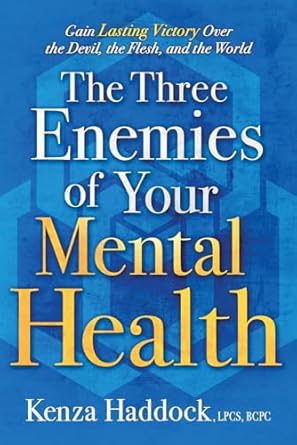The Transformative Power of the Bible on Mental Health

Dr. George Barna, in a recent interview with CBN’s Billy Hallowell, sheds light on the correlation between mental health challenges and an individual’s worldview. Barna’s latest research from the American Worldview Inventory 2024 shows that a biblical worldview may offer relief to those struggling with mental health issues like anxiety, depression and fear.
“Our best estimates show that about one out of every four adults has a diagnosable mental illness,” Barna says. He points out that younger generations are grappling with mental health challenges at a higher rate, with 56% of Gen Z experiencing symptoms like anxiety and depression. In stark contrast, only 14% of Baby Boomers face similar issues, a generation with a significantly higher rate of biblical worldview adherence. According to Barna, this is no mere coincidence.
Breaking News. Spirit-Filled Stories. Subscribe to Charisma on YouTube now!
“People with a biblical worldview are less likely to do things like wind up in prison, to have some kind of addiction … to say that they’re feeling fulfilled with their life,” he explains. This connection shows that adopting faith-based values offers a broader sense of purpose, grounding people in challenging times.
For many facing mental health battles, he believes the answer to their problems isn’t always medication. “What may be happening is that it’s not a chemical imbalance or physical issue … it may be their belief structure, their worldview,” he says, highlighting the importance of spiritual health in conjunction with mental health.
Order Kenza Haddock’s “The Three Enemies of Your Mental Health” on Amazon.com!
Barna notes that people of faith often find comfort through shared community and purpose in life, which can reduce feelings of despair. While he acknowledges that medicinal treatment is necessary for some, he emphasizes that “worldview isn’t just about believing things that make a pastor happy. Worldview actually has a dramatic effect on all aspects of your life.” A biblical worldview, he argues, could be a protective factor against certain mental health issues.
King David’s writings in the Psalms offer a powerful example for Christians today on navigating times of mental and emotional distress. Throughout the Psalms, David openly voices his struggles with feelings of despair, anxiety and fear, giving readers an honest look into his inner turmoil. In Psalm 13:1, he cries, “How long, O Lord? Will You forget me forever?” revealing the depth of his personal hurt.
Yet, David models a way forward by consistently turning to God as his source of comfort and strength. His words in Psalm 23:4, “Even though I walk through the valley of the shadow of death, I will fear no evil; for You are with me,” reflect his unwavering trust in God’s presence and protection, even in the darkest times. David’s faith reminds us that in moments of mental anguish, we can find hope and peace by reaching out to God, relying on His promises to provide strength and comfort.
In these times of growing darkness, the Bible provides us with comfort and reassurance, encouraging everyone who reads it that they can find peace in God. Psalm 29:11 states, “The Lord will give strength to His people; the Lord will bless His people with peace.” For those struggling, Barna’s research reveals that turning toward a relationship with God will provide solace and a renewed sense of hope in our sin-cursed world.
Join Charisma Magazine Online to follow everything the Holy Spirit is doing around the world!
James Lasher is staff writer for Charisma Media.
The post The Transformative Power of the Bible on Mental Health appeared first on Charisma Magazine Online.